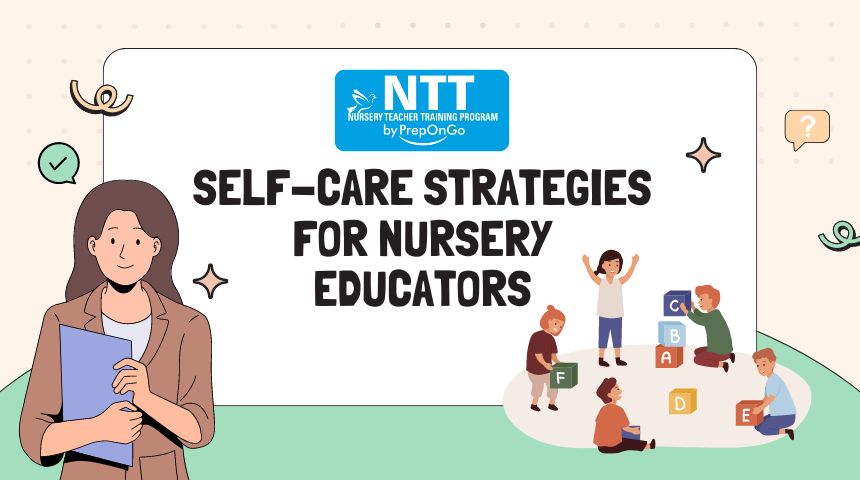Self-Care Strategies for Nursery Educators

The world of nursery education is filled with joy, wonder, and the constant energy of young learners. However, the dedication and emotional investment required of nursery educators can also lead to burnout. This blog post explores the importance of self-care and offers practical strategies to help nursery educators avoid burnout and maintain a healthy work-life balance.
Recognizing the Signs of Burnout:
Before diving into self-care strategies, it’s crucial to recognize the signs of burnout. These can include:
- Emotional exhaustion: Feeling constantly drained and emotionally depleted.
- Cynicism and detachment: Losing enthusiasm for the job and feeling disconnected from your students.
- Reduced sense of accomplishment: Doubting your abilities and feeling like your work isn’t making a difference.
- Changes in sleep or appetite: Experiencing difficulty sleeping, changes in eating habits, or neglecting your physical health.
Prioritizing Self-Care:
Taking care of yourself is not a luxury – it’s a necessity. Here are some effective self-care strategies to combat burnout:
- Maintain Healthy Boundaries: Establish clear boundaries between work and personal life. Disconnect from work emails and calls outside of work hours, and avoid taking work home with you.
- Prioritize Sleep: Aim for 7-8 hours of quality sleep each night. Establishing a regular sleep schedule can significantly improve your energy levels and overall well-being.
- Nourish Your Body: Fuel your body with healthy and nutritious meals and snacks. This will help you maintain your energy levels and reduce stress.
- Regular Exercise: Physical activity is a powerful stress reliever. Engage in activities you enjoy, whether it’s a brisk walk, participating in a sport, or attending a fitness class.
- Mindfulness Practices: Take time for activities that promote relaxation and mindfulness. Consider meditation, yoga, deep breathing exercises, or spending time in nature.
- Connect with Loved Ones: Social support is crucial for emotional well-being. Spend time with friends and family, engage in activities you enjoy, and build a strong support system outside of work.
- Seek Professional Help: If you’re struggling to cope with stress or burnout on your own, don’t hesitate to seek professional help from a therapist or counselor.
Making Self-Care a Habit:
Self-care doesn’t have to be complicated or time-consuming. Incorporate small, manageable self-care practices into your daily routine. Remember, a consistent self-care routine is vital for preventing burnout and ensuring you have the energy and enthusiasm to be the best educator you can be for your young students.
Bonus Tip:
- Advocate for Yourself: Talk to your employer about creating a supportive work environment that prioritizes educator well-being. Consider collaborating with colleagues to explore opportunities for stress reduction or professional development workshops related to self-care.
By prioritizing self-care and implementing these strategies, nursery educators can combat burnout, maintain a healthy work-life balance, and continue to make a positive impact on the lives of young children.
